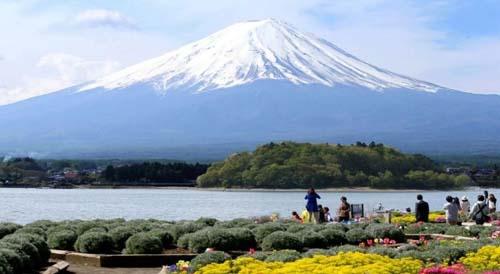
Celebrating Mountain Day in Japan
Arslan Ali Arsal
Every year on August 11, people celebrate Mountain Day, or Yama no Hi ???, in Japan. This is the country’s newest public holiday, enacted in 2014 with the intention to encourage people to pay homage to, and appreciate blessings from, the mountains.
It shouldn’t come as a surprise that there is a public holiday in Japan celebrating the mountains. More than 70% of the country is mountainous and the highest peak, Mt Fuji (Fujisan, ???) at 3,775 metres, is one of the most famous mountains in the world.
Traditionally, mountains have held great spiritual significance in Japanese culture and they are often revered, sacred places. This makes complete sense when you think about the strong relationship the Shinto ?? religion has with nature.
The Japanese Alpine Club and other hiking, trekking and skiing enthusiasts advocated for a public holiday to celebrate the country’s mountainous landscape. The law establishing Mountain Day was enacted in 2014 and first enforced in 2016.
It is said that August 11 was chosen because the kanji for “eight” (?) looks like a mountain and the number 11 looks like two trees.

Since it’s a new holiday, there are no traditions observed. However, what better way to celebrate Mountain Day than to spend some time in the mountains? Read more about where to experience breathtaking mountains in Japan.
There is a deep reverence and spiritual connection to nature in Japan thanks to the Shinto religion, which emphasises the power and divinity of nature. Spirits, or kami ?, take the form of things found in nature like mountains, trees, rivers, and so on.

There are three mountains considered to be the holiest mountains in Japan: Mt Fuji, Mt Haku (Hakusan ??) and Mt Tate (Tateyama ??). Together, they are known as Sanreizan ???, or the Three Holy Mountains and are believed to possess spiritual powers.
Aside from being a symbol of Japan, Mt Fuji is a gathering point for the spirits of ancestors. The main deity associated with Mt Fuji is Shinto goddess Konohana Sakura Hime, the Goddess of Flowering Trees. “Fuji” is also the Ainu word for “fire”, so the fire god is associated with Mt Fuji and honoured in a fire ceremony at the end of each year’s climbing season.
While Mt Fuji is associated with fire, Mt Haku – located near Kanazawa in Ishikawa Prefecture – is worshipped as the god of water. This is because three nearby rivers get their water from this mountain. The water from these rivers is essential for local farmers. Hakusan, meaning White Mountain, is covered in snow for most of the year, making it a popular destination for skiers and snowboarders.

Finally, Mt Tate is known as the place where spirits come back. It used to be where Buddhist Monks trained, but nowadays is a popular hiking destination like its other holy mountain counterparts. Along with hiking, people enjoy onsen when visiting this mountain. It is also covered in snow for much of the year, making it a difficult peak to climb for most of the year.
